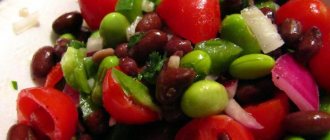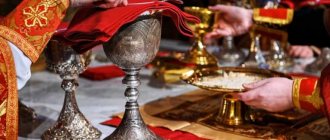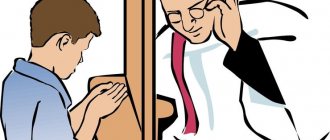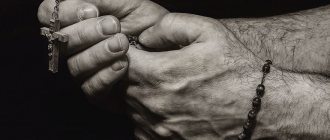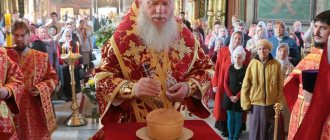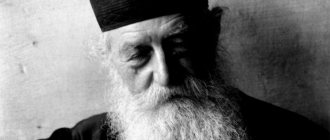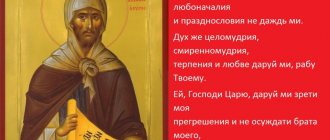Is fasting required before Communion?
According to the words of St. John Chrysostom, the sacrament of Communion opens for a person the gates of heaven on earth. Communion is a meeting with Christ, it is participation in Vespers, which He Himself performs. This event is so significant that it cannot be approached casually, on the run. That is why it is important for a modern Christian to try to escape from the usual bustle when preparing to take communion. It seems that the pace of modern life leaves no time for such a “pause”. But again, according to the words of St. John Chrysostom, “the time to approach the mysteries and receive communion is when the conscience is clear.” It is abstinence and prayer that help to look inside the soul and tune in to repentance, which cleanses it. A feasible fast and prayer rule do not force a person to abandon his daily activities, but allow him to prepare for the sacrament.
From the document “On the Participation of the Faithful in the Eucharist” : “The requirements for preparation for Holy Communion are determined for each believer by church decrees and norms, which are applied by the confessor, taking into account the regularity of communion of the Holy Mysteries, spiritual, moral and physical state, external circumstances of life, for example, busyness, burdened with caring for others. <…>
Both the confessor, guided by church decrees and norms and on the basis of them instructing a Christian, and the communicant must realize that the goal of preparation is not the external fulfillment of formal conditions, but the acquisition of a repentant state of soul, forgiveness of offenses and reconciliation with neighbors, union with Christ in the Holy Mysteries . Fasting and prayer are called upon to help those preparing for communion to achieve this inner state.”
Priest Vladimir Rusin, rector of the Intercession Church in the village. Kunye (Kursk Metropolis):
Preparation for Communion is mandatory. We are preparing for a meeting with someone important to us. Or another example - to participate in a conference. It is clear that all this requires some kind of concentration. The person giving the report must be on topic; they will ask him questions, and if he cannot answer them, it will probably not be very good. Likewise, the communicant who is preparing for the sacrament must be on topic. He must be determined not to miss God. You don’t just need to brush your teeth, come up, quickly chew and swallow everything, but you need to accept God’s grace. Therefore, it is necessary to prepare for Communion. It’s impossible not to prepare.
Even if a person is completely ill, there must still be some moment of preparation and spirit. When a person is in a hospital, there are, of course, special conditions, and it may well be that the food intake is somehow difficult to control or even impossible. When a person has a serious illness, pregnancy or some other serious reason, there may be some allowances. But to completely abolish fasting before Communion and not notice it at all is wrong.
To some extent, preparation is necessary. You can’t do it like this: fell - woke up - took communion. You need to work hard.
Priest Dmitry Berezin, rector of the Kazan Church in the village of Molokovo, Leninsky district, Moscow region, dean of the Vidnovsky church district:
It is necessary to prepare spiritually for Communion; for this, fasting, prayers, and repentance are prescribed. But there are situations when a person is preparing and wants to take communion, but did not have time to read the prayer rule in full or did not fast. At confession, you need to tell the priest about this so that he can decide whether to allow the person to receive Communion. I believe that a formal approach is inappropriate here. It also happens differently: a person has read everything, fasted, confessed, but at the same time is in an active conflict, for example, with relatives, has not been reconciled and does not want to. This, I think, is a more serious obstacle than the sausage sandwich the day before.
Archpriest Alexy Mindrov, rector of the Church of the Holy Martyr Hermogenes, Patriarch of Moscow and All Rus', in Krylatskoye (Moscow):
Naturally, there are exceptions in life, and they can be discussed with the priest. The priest, knowing the person, his infirmities, his life circumstances (some have a difficult work schedule, others have health problems), meets halfway and helps determine the available measure of fasting before Communion.
But it is better to always remember that there are certain rules indicating how it should be. Any evasion, reduction or, conversely, expansion of them shows that we act at our own discretion; this is not always justified, and it is better to avoid this by seeking advice from a priest. In general, when determining the extent of your fast, you need to focus on the rules and canons established in the Church. The main norm always and in everything is the law of God and love.
What can you do in fasting before Communion?
Priest Vladimir Rusin:
During the fast before Communion, the most important thing that can and should be done is to tune in. And, accordingly, try to remove what interferes, distracts, entertains.
Let's figure out what the essence of “pinching our belly” is? Why do we need food restrictions? Our body is sometimes like some capricious child who asks for something - and we give it to him. I wanted candy - we gave it to the child so that he would fall behind. But as a result, such a child grows up and does not understand some important things. He, for example, can interfere in the conversation of adults, believing that he is the most important. During preparation for Communion, we slowly return our body to its honorable third place - after the spirit and soul.
It is clear that when a person regularly approaches the Chalice, every fast before Communion, confession and the sacrament itself cannot be a 180-degree turn for him. He has already made a turn, and now he is taxiing on his spiritual path.
I really like the word “rule”. It guides and straightens us. It helps us act correctly again and evaluate our actions. Sometimes a person gets upset because before he fasted, prepared, confessed - and there were tears, and he directly felt how his soul was being cleansed. And another time he came - and he didn’t even have much to say to the priest. So, some small things... But these little things - when they accumulate, they become the most dangerous sins. There are many parables and stories about this. These seemingly unimportant sins are like dust. If something is splashed on the windshield of a car from above, we see a stain and want to erase it right away. And if fine dust settles on the glass, we may not even notice that the glass has already become corrugated. How did this happen, when? The same thing happens with the soul. We must not miss this dust of sins. For this, spiritual life must be rhythmic, and every fast before Communion must be the time when we erase this dust.
How to behave in the morning before the Sacrament of the Eucharist?
On the day of Communion, you should not just “subtract” the morning rule and “finish reading” the sequence. First of all, it is worth praying carefully so that the Lord will vouchsafe us to receive communion. We are all unworthy of the Body and Blood of the Savior, so we must gratefully accept this life-giving gift.
Should I brush my teeth?
The question is often asked: is it possible to brush your teeth in the morning? Some “orthodox” believe that it is impossible. But many priests answer: it is possible. Why?
If it is unpleasant for a person to go to work or communicate with people because of the unpleasant smell from his breath, then how can he approach the Chalice in this form and with such a feeling? We must come to Christ with a pure heart and clean lips. In all senses.
Communion and taking medications
Another problematic question: how to take communion if you have to take pills in the morning?
Bishop Mark Golovkov says that the pills are not food, but medicine. If you have serious health problems and it is dangerous for you to interrupt the course of some drug, then you should not refuse both the pills and Holy Communion.
If you take some vitamins or nutritional supplements, and nothing serious will happen when you take them not in the morning, but in the afternoon, then why panic? You can calmly take communion, and when you get home, take vitamins or medications.
If everything is more or less clear with behavior before Communion, then many questions remain with what is possible and not possible after receiving the Holy Gifts.
What should you not do during Lent before Communion?
Archpriest Alexy Mindrov:
First of all, we must tune in to the fact that our fast should be both spiritual and physical. As for physical fasting, we must observe the measure that the fathers determined for us and maintain abstinence for three days. It is assumed that this is food abstinence, refusal of dairy and meat foods, and marital fasting, that is, refusal of intimacy between husband and wife.
We have identified foods (meat, milk), the consumption of which would be good to avoid during the period of preparation for Communion. But you need to try not to eat food that is difficult for the body, which means it significantly affects prayer.
Such a refusal is stressful for the body. But it is necessary. Because abstinence and prayer before Communion is a small sacrifice that we can make to God. That is why, I can say clearly and definitely, we must try to observe the canons of the Church. Otherwise, we will find ourselves in this state: we seem to be talking about love for God, but in fact we are deceiving ourselves and in reality we are not showing it at all.
Of course, a person may have some special circumstances. In this case, you need to talk to the priest and explain why fasting before Communion is not strictly observed. It happens that a person is sick, a woman during pregnancy or a nursing mother cannot fully fast on her own - she is entitled to relief.
When fasting before Communion, we must proceed from the fact that first of all we come to God, to His meal, which the Lord arranges for us out of His love. Therefore, on the one hand, you need to follow the rigor of the canons, and on the other hand, not lose the common understanding that for each person and for each case there must be an individual approach. Some have infirmities, some have health problems - everyone is different.
The most important thing is that there is no laziness of the soul. This is exactly what should not be done during the fast before Communion - allow carelessness, negligence, indifference.
What to do if you drank coffee before communion?
Tell Father about this in confession and repent. Usually they don’t scold for this, and nothing bad will happen. As a rule, priests forgive this sin and administer the sacrament. But you should not deceive and hope that it will be enough to talk about this sin of yours, and it will turn out that you have not denied yourself anything, and your sin is forgiven. A true Christian, having sinned, repents of his sin, and hopes to become better, making every effort so that the situation does not repeat itself. If you deceive the Church and God, there will be no special meaning in communion, unless for you, of course, this is not just a ritual that needs to be completed once. Although such a ritual does not make much sense.
Fasting before Communion during Lent
Archpriest Alexy Mindrov:
I think that if we have the concept of fasting as a pure preparation, then it can be strengthened during that period. But to strengthen it with what? We already refuse dairy and meat foods at this time, and if it is the Assumption or Great Lent, then we also refuse fish. If a person sees that there is no difficulty in this for him, then he needs to look at what exactly is the difficulty for him? It happens that a person can refuse food, but not some addictions - alcohol, smoking, or other interfering habits. This is the most difficult moment for him. This means that you need to pay attention to it.
The question here is: what is our measure? Is it a product or is it really abstinence? The emphasis should be on abstinence.
I know that in Greece and Mount Athos, during the first three days of Lent, people abstain from food altogether. Such fasting is a special state. If you take a blessing from your confessor, then many people are quite capable of the experience of strict abstinence; I myself tried it in my youth and try to stick to it. But this should only be done with a blessing. And soberly assessing one’s strengths: since it is one thing to be a monk living in a certain rhythm of life, another is to be a mother of many children or, for example, a man who actively works most of the day.
Why do I put so much emphasis on blessing? Because arbitrariness does not lead to good. Either pride increases, or physical health becomes poor, and as a result, grumbling and discontent begin - and our spiritual life is upset. Because a person is a vessel that contains both soul and body.
That is, if possible, it is advisable to secure the blessing of a confessor and bow before God as the beginning of a feat. Because if we say that fasting is not a diet, but a spiritual path, then we need God’s help. And with God, bodily problems fade into the background.
Fasting before communion during the whole week
Archpriest Andrey Efanov:
A continuous week is a period when fasting is canceled. There are five of these a year - ten days after Christmas, two weeks (about the publican and the Pharisee and Cheese Week, during which everything is possible except meat) before Lent, Easter and Trinity Week before Peter's Lent.
During the continuous weeks preparing for fasting, communicants usually try to observe gastronomic abstinence before receiving the Sacrament. But on the festive holidays or on Bright Week it is allowed to receive communion without fasting, if the believer, together with the entire Church, has gone through a multi-day fast. However, there is no need to overeat on the eve of Communion. After all, even when fasting is canceled, gluttony still remains a sin. Also, during continuous weeks, as always, Eucharistic fasting is necessary - that is, refusal of food and drink immediately before the Liturgy (usually from 12 o'clock at night).
And always during fasting before Communion, we must remember that meat and milk themselves do not carry sin, but their consumption can make our attitude sinful. Every Christian can and should be told by his own conscience how to fast correctly.
How long does the fast last before Communion?
From the document “On the Participation of the Faithful in the Eucharist”: “The current practice, according to which the communicant fasts for three days before communion several times a year, is fully consistent with the tradition of the Church. It should also be recognized as acceptable the practice when a person who receives communion weekly or several times a month, and at the same time observes the multi-day and one-day fasts specified in the Charter, proceeds to the Holy Chalice without additional fasting, or maintaining a one-day fast or fasting on the evening of the eve of communion. A decision on this issue should be made with the blessing of the confessor. The requirements for preparation for Holy Communion, addressed to the laity who frequently receive communion, also apply to clergy.
A special case in relation to the practice of preparing for Holy Communion is Bright Week - the week after the holiday of Easter. <…> ...it should be recognized that, in accordance with canonical tradition, the practice that has developed in many parishes of the Russian Orthodox Church is when Christians observing Lent during Bright Week begin Holy Communion, limiting the fast to not eating food after midnight. A similar practice can be extended to the period between Christmas and Epiphany. Those preparing for communion on these days should take special care to guard themselves from excessive consumption of food and drink.”
Archpriest Alexy Mindrov:
Practices vary: some fast for three days, some for longer, and for some this time of abstinence is reduced for one reason or another. We must understand the basic principle: in any case there must be preparation.
The Holy Venerable Mark the Ascetic says about fasting: “Just as an unreasonable farmer, if he cultivated his field at many costs and left it unsown, labored at a loss to himself, so we, if, having enslaved our body with great attention to ourselves, we do not sow seeds prayers, it turns out that we have worked against ourselves. But maybe someone will say: if prayer is the main work of truth, then what is the need for fasting? Great in every way: for just as a poor farmer sows in a field overgrown with bad grass, without cultivating the land again, then instead of wheat he will reap thorns: so we, if we sow the seed of prayer without first depressing our body with fasting, then instead of righteousness we will bear fruit sin. For this body is from the same earth, and unless it is cultivated with the same diligence as the earth, it will never produce the fruit of righteousness..."
That is, the soil is our soul, and we must cultivate it with bodily abstinence, remove all unnecessary things and sow the seed of prayer. If a person does not prepare the soil and throws in the seeds, the thorns will suppress them. That is why we cannot say that before Communion you can do without fasting. And if he prepared the soil, but did not sow, then he will also not receive any fruit. In preparation for the sacrament, physical and mental fasting go hand in hand.
But as for the timing, it is best for a Christian to live in dialogue with his spiritual father, so that there is a priest nearby to whom he can come, and he, knowing his measure, will help him decide how much to fast and how. After all, all people are different and everyone’s life circumstances are different.
If a believer has not received communion for a long time, then it is better to endure a longer fast so that the soul feels what state it was in. If a person receives communion daily, then he also needs to think about how beneficial this is to his soul. There is also a certain temptation in this, especially if a person receives communion without preparing, citing the fact that he has received communion before.
Under no circumstances, only out of great need. It is even forbidden to travel these days for worldly purposes.
1241. Is it possible to swim on the day of communion?
It is not advised, since you have taken into yourself the Great Shrine.
1242. Is it possible to eat or drink water after reading evening prayers?
Not possible, only out of necessity. The elders allow it, but say: “If you eat after the evening rule, then read the evening prayers again, and if you drink, then you need to make twelve bows for it. And when others drink, don’t judge, but say to yourself: “Oh, I’m damned.”
1243. Is it possible for those who work the night shift to eat at night after twelve o'clock? Do they need to read prayers “for the future”?
If necessary, you can eat and pray quite well, at least briefly. Prayer never hurts, and it also eliminates temptations.
1244. Should I take off my baptismal body and wash with it when washing?
It is not advisable to remove the pectoral cross, since you can die at this time, they can also bewitch you at this time (since you are not protected at this time). To prevent the chain from burning your body, you need to soak it in cold water.
1245. There is a belief that until the fortieth day nothing of the deceased’s belongings should be given away. Is this true?
This is a belief inspired by the devil. On the contrary, we must do good for the deceased. Donate Cahors wine (for the Holy Mysteries), flour (for prosphora), wax (for candles), distribute from the belongings of the deceased to the monastery, to the church, buy holy books (and distribute to believers) before the fortieth day, and not after. When should you petition for a convicted person—before the trial or after the trial? So it is here: the soul goes through ordeals, a trial is carried out, one must intercede for it: pray and perform deeds of mercy, but people do not do this.
1246. Should the icon that was worn at the funeral service for the deceased be left in the church for forty days,
and where should it be put then?
There is a custom that the icon remains in the temple until the fortieth day, and on the fortieth day (or after) is taken home. The icon is not placed in the coffin, St. writes about this. Theophan the Recluse.
1247. If someone misbehaves in the temple and interferes with the service, is it possible to remove him by force?
Not only is it possible, but it should be.
1248. How to look at the science of preparing different foods?
The arts of cooking and seasoning food are harmful, because they teach people to indulge in voluptuousness.
1249. If the priest is not very experienced and is probably doing something wrong, then should he tell him about it, or should he not?
It is better to abstain, as the great St. advises. Barsanuphius. You can lovingly advise a close priest.
1250. Is it possible to watch TV at least occasionally? Is it harmful to have a TV in the house if it is turned off?
We have already said that the whole point is how the item is used: for a good purpose or a bad one.
In one monastery, a priest said out loud to the spiritually ill (possessed): “I would like to have a television that would show only the sacred: instructions on how to live according to God, how to be saved, how to please God, how to overcome your sinful habits.” At this time, the demon (located in the possessed woman) could not stand it and shouted through her mouth: “Look, what you want! Wait!”
Another case. The priest came to the monastery with his spiritually ill mother. The demon (in her) through the lips of the sick woman shouted during the prayer service: “They have peace in their house! I won't get out of it." After the end of the prayer service, the priest who served the prayer service asked the visiting priest: “What kind of “peace” is this in your house?” It turned out that he had two televisions: a color one and a simple one; they watched dances, songs, laughter, and idle talk. “That’s why,” says the preacher Fr. Archimandrite John in his teaching, - all sorts of people enter your house through the TV: sorcerers, hypnotists, robbers, etc. He is a robber, plundering your souls. He raises his children in his own way and takes up a lot of his time.”
Let me give you another example. One old believer told me: “I come to my children’s house, and they watch TV. I look - the whole table is loaded with unwashed dirty dishes. When my daughter saw me, she rejoiced and said to me: “Mom, we have been waiting for you for a long time so that you can wash the dishes for us.”
In addition to everything, you need to know that children especially get sick from watching sinful things, that is, they become possessed.
Now let us touch upon the issue of keeping any sinful object in the house, such as paintings and statues of naked people, books of blasphemous and sinful novels, cigarettes, playing cards, an album of sinful photographs, etc.
During the life of Rev. Seraphim of Sarov, the son brought his mother, who suffered from drunkenness. The monk healed her and at the same time said: “Do not keep wine bottles in the house.”
1251. How to correct a sin if you ate apples before the apple Savior, that is, before the Transfiguration?
The rule for this prohibits the entire month of August (old style) from eating apples. One must also repent to God at the Sacrament of Confession.
1252. What does it mean during the liturgy to cry “Decede the Catechumen...”?
“Catechumen” means unbaptized; previously they were announced and instructed in the faith. Therefore, they need to leave the temple.
1253. How often should a layman receive communion and how many times a year is obligatory?
There is no specific rule for this, except during all four fasts, on the day of the Angel, on the day of baptism (who remembers), on the day of the wedding. Only the confessor can say for sure.
1254. In church I’m afraid to stand next to the sick (possessed) or drink from the same mug with them
-
What if the demon jumps over to me?
Fear is from the enemy. From the Gospel we know that demons could not even enter pigs. There is a popular proverb: “The demon boasted of taking possession of the whole world, but God did not give him power over the pig.” The demon enters for an ungodly, sinful or ungodly life; for pride or renunciation of God.
1255. If in a church, while taking holy water or drinking water, you find someone’s half-drunk holy water or drinking water in a mug, then what is the best thing to do?
You can pour it out, and those who don’t disdain can finish it.
1256. I notice that some people come straight to Communion and say that they stood throughout the service so that the priest would allow them to take Communion. In this case, is it necessary to warn the priest in order to protect him from sin?
It would be a good idea to give the priest a hint. In order to receive communion, you must fast, and go to church, and attend the all-night vigil the day before, and be a clean woman according to women’s custom, and abstain from your husband the day before and on the day itself, and not eat or drink from twelve o’clock at night. , and reconcile, and forgive offenses, and have a cross on your neck, and go to confession with a priest.
1257. I found someone else’s cross on the road and didn’t know whether to take it, and if I took it, what to do with it?
There is nothing bad, you can give it to the temple.
1258. They always put “holy letters” in the mailbox with threats that if you don’t rewrite it, there will be trouble. What to do in this case?
About the “holy letters” of St. John of Kronstadt wrote in his time: do not be afraid of threats, do not write, but burn, but if you wrote earlier, then tell the priest about it in confession.
1259. How often and on what best days should you visit the graves of loved ones and what is advisable to do there? Is it possible to take dogs with you?
Marital fast before Communion
Priest Dmitry Berezin:
Marital fasting before Communion is also a form of abstinence, the purpose of which is the primacy of the soul over the body. When preparing for the sacrament, we try to sweep away everything that prevents us from focusing on the spiritual.
Since this issue concerns both spouses, it is better to consult with your confessor on what to do. After all, it happens that only one of the spouses is a believer, and the second may have a very negative attitude towards such restrictions, and instead of peace there will be quarrels in the family. But this does not mean that in such situations you always need to indulge and find excuses for yourself.
Priest Vladimir Rusin:
I think that if both husband and wife are believers, then there are no problems with observing marital fasting. In a Christian family, all fasts can be observed by mutual consent.
But if one of the spouses does not adhere to fasts, then you need to discuss this intimate issue with your confessor and ask his advice. In such a situation, there may be some relief for one of the parties. But I think there should be at least a one-day fast, and it can be done.
If a husband and wife love each other, they will figure this out. The main thing is to be open to each other. Say: “I am preparing to receive communion.” - “Well, okay, get ready. And I’ll go and do other things for now. You say your prayers, and I’ll go night fishing,” for example.
The main thing is to actually go fishing, and not somewhere else. Because if there is a risk that the family may fall apart and this topic may become a stumbling block, then, of course, we need to remember the words of the Apostle Paul that marital fasting is observed only by mutual consent.
Do not depart from one another, except by consent, for a time, to practice fasting and prayer, and then be together again, so that Satan does not tempt you through your intemperance (1 Cor. 7:5).
Fasting before Communion for children
Children's fasting before Communion requires a special approach. It is important that the little Christian understands the meaning of participation in the sacrament, so that it is a joy for him, and not a duty that complicates life. The lesson in preparing for Communion for a child is, first of all, the attitude of parents and family rules. A child’s fast should not be based on prohibitions, but on the desire, seeing the example of adults, to sacrifice something himself, be it his favorite food or entertainment. Acquaintance with the experience of abstinence before Communion for a child begins with the Eucharistic fast.
From the document “On the Participation of the Faithful in the Eucharist” : “The preparation of children for Holy Communion has its own characteristics. Its duration and content are determined by the parents in consultation with the confessor and must take into account the age, state of health and degree of church involvement of the child. <…> For children under three years of age, the Eucharistic fast is not obligatory. According to tradition, from the age of three, children in Orthodox families are gradually taught to abstain from food and drink before communion of the Holy Mysteries (that is, in the morning before communion. - Ed.). By the age of seven, a child should be firmly accustomed to receiving communion on an empty stomach.”
Priest Dmitry Berezin:
The issue of children's fasting before Communion should be decided individually by parents, if possible in consultation with a confessor who knows the family. Somewhere there should be more strict rules, somewhere less. In my opinion, you shouldn’t bother children and teenagers too much with this, because you always want to reset external rules. But asceticism must come from within, and the person fasting - an adult or a child - must have an understanding of why he is doing it.
The absence of resentment, quarrel, or conflict that may arise when a certain behavior is imposed can be more important than candy or a cartoon. But sometimes parents in preparation pay attention to formal things that are easy to check, ignoring more important but unnoticeable ones.
Archpriest Alexy Mindrov:
I think that in preparing for Communion, children need, first of all, to focus on their parents. Parents must determine for themselves what order should be in their family, including in preparing for Communion.
Of course, a child’s fast should be weaker than that of adults, because children in any case remain children, they need to grow - both spiritually and physically. For children - especially younger ones - it is necessary to establish a measure of abstinence before Communion, for example, refusal of sweets. Or from some other things that are not necessary for them.
Each parent himself knows his children, knows their weaknesses. The hardest thing for many children today is to give up the Internet and some electronic games.
The question is different. Can we convey the meaning of fasting to a child? It is necessary for him to understand that this is his personal abstinence, and not mom and dad who are not feeding him tasty food today. Here we need to approach both from the point of view of pedagogy and from the point of view of pastoral experience. Therefore, it is good that the measure of a child’s abstinence before Communion is determined in a dialogue between the priest and the child’s parents.
We need to see what will be more useful for him, but in such a way as not to push the child away. On the one hand, you cannot scare him with excessive severity. On the other hand, he needs to understand that he needs to work hard, try and follow his own, albeit small, path of abstinence.
Fasting before Communion for nursing mothers
Priest Dmitry Berezin:
For pregnant and breastfeeding women, food restrictions are relaxed, so fasting is not necessary. But if a woman feels fine, it would be right to limit herself on the eve of Communion, for example, in meat or something else.
According to canonical rules, a woman who has recently given birth may not abstain from fast food even during Lent. The rule of St. Timothy of Alexandria says: “Fasting is established to pacify our body. So, when the body is in humility and weakness, then it should take food and drink as it wants and can bear.”
Firstly, a woman who has recently given birth already has to comply with a number of restrictions. And secondly, she needs to restore her body and have enough strength and energy to cope with her maternal responsibilities.
I think every believing woman sees for herself whether and what opportunity she has to keep a food fast in one form or another before Communion. But the most important thing to remember is that fasting is not only about food.
Priest Vladimir Rusin:
For those who do not have the opportunity to fast fully before Communion - for those who are sick, pregnant, breastfeeding - the main thing during this period of preparation is increased attention to what is happening in the soul, to one’s small, unnoticeable sins. Just when the state of the body changes, a person may notice that he has become irritable, or has become lazy, or has begun to use his exceptional position, even abuse it somewhere, and demand special treatment. This is where selfishness and pride can manifest themselves. A person, concentrating on his own, stops noticing that someone nearby is sick, that it is difficult not only for him now, but also for others, and that there are many people around who are really having a hard time.
I am always amazed by such examples when, for example, a person is seriously ill, and at the same time he also labors somewhere with volunteers, and works to the best of his ability in the church, and always tries to help others as much as possible. And you see that the Lord strengthens such people. Not only physically, but, most importantly, spiritually.
After all, if you look around, each of us, to one degree or another, is now sick, infirm, and needs a special approach. Even children are discharged from the maternity hospital and practically no one is given a hundred percent health rating. But if we are alive, we have some part of health and strength. This means that we can bear each other’s burdens and take care of each other. Someone can help me, someone can help me. And when we are included in this chain, then grace flows through it, like electricity, and the light bulbs light up.
What is possible and what is not allowed after Holy Communion?
Should I bow to the ground? Is it possible to spit? Is it possible to kiss on this day? Should you brush your teeth in the evening? These questions will seem funny to many, but nevertheless, they often worry participants.
You can't sin
If you ask a priest what you cannot do after Communion, he will probably answer in one word: “Sin.” Why? Because you have accepted Christ into your heart. And God is sinless. It cannot be combined with sin. Therefore, if we begin to break the commandments, then we literally drive the Savior out of our hearts.
That is why after the Sacrament of the Eucharist it is advised to be especially careful so as not to lose the received grace. It is believed that one should talk a little, pray more, thank God, and, if possible, avoid empty talk and company. After all, if the demon cannot tempt us directly, then he will try to do it through family and friends or even random people.
Always give thanks
If a person does something kind or pleasant to us, we just want to thank him. But how can we thank the Lord, who for the sake of our salvation accepted death on the cross and gave us the opportunity to unite with him in the Sacrament of the Eucharist? No earthly words will suffice. But this does not mean at all that you should not try.
After Communion, you should carefully read the prayers of gratitude, and also express gratitude in your own words. The main thing is sincerity and faith.
To bow or not to bow?
It is believed that on the day of Holy Communion one should not bow to the ground. Why?
Kneeling is a sign of repentance, crying for sins. And the person receiving communion rejoices, and does not cry or mourn. He accepted Christ into his heart.
Should I continue to fast?
Some confessors bless their spiritual children to abstain from fast food and wine throughout the day. It is worth saying that there are no such regulations. Where did this custom come from then?
After Holy Communion it is very easy to dissipate grace. And a hearty meal can contribute to this. You had a good lunch, then you wanted to sleep. Thoughts about prayer and the meaning of the Sacrament faded into the background. This is why some priests do not bless eating heavy fatty foods and drinking wine.
But a moderate meal, even if it contains meat, dairy products and wine, will not harm. So the main emphasis in this matter is moderation.
Is it possible to spit and eat berries with seeds?
Surely you have heard from believers or even priests that after the Sacrament of the Eucharist you cannot spit out anything. How to understand this and is it worth adhering to this rule?
This prohibition is associated with pious fear, so as not to accidentally spit out a piece of the Holy Gifts. But in order to minimize this risk, after Communion we always take a drink - holy water or diluted wine and pieces of prosphora.
Moreover: during Holy Communion it is advised to swallow the piece completely without chewing it. Then you won’t be afraid that I might accidentally spit out a particle along with food while brushing your teeth in the evening.
Some priests still, to be on the safe side, advise not to eat certain foods that will cause us to “spit”: fish with bones, berries with seeds, and so on. If you had to use them, they are often advised to carefully collect the seeds and burn them.
In general, the opinions of priests on this issue differ: some say that there is a point in such actions, while others call not to strain out the mosquito.
What should you do? Either consult the priest you are confessing to, act according to your conscience, or avoid possible situations altogether. It is not necessary to eat foods with seeds on the day of Holy Communion.
What can you eat during Lent before Communion?
Archpriest Alexy Mindrov:
If we translate some worldly things, then let us remember the saying: “A full belly is deaf to learning.” It’s the same with prayer: the more a person indulges his weaknesses, the more difficult it is for him to see himself and his sins, the harder it is to pray. Therefore, you need to eat in such a way that it does not interfere with your preparation for Communion.
It is clear that the body needs protein foods, and it happens that parishioners complain that during the fast before Communion you can only eat pasta and other carbohydrates. But here it is worth shifting the focus to something else: fasting is not food, not carbohydrates, it is abstinence. And abstinence is the fruit that we bring to God. Yes, fasting is a serious shake-up. But through it a person can manifest himself, his faith. And if we treat fasting as a moment when we can really bring something to God on a human level accessible to us, then it will be easier to abstain.
But it happens that food, as they say, is not a problem - for some it is easy not to eat meat and milk. I've met people who said that. But it’s very difficult for them to give up a glass of wine before bed; they’ve already developed a habit. In general, everyone knows perfectly well what exactly abstinence and real fasting mean for him, what he can do, and what it is better to avoid. The most important thing is that we do not have pleasures of the flesh.
Is it possible to eat fish during Lent before Communion?
Archpriest Alexy Mindrov:
Yes, eating fish while preparing for Communion is completely acceptable. True, there is an exception. During multi-day fasts, fish is excluded from the diet, except for a few holidays (the Transfiguration of the Lord in the Dormition Fast, the Annunciation of the Blessed Virgin Mary and the Entry of the Lord into Jerusalem during Lent). I will add that outside the period of multi-day fasts, a Christian can abstain more strictly, for example, not eating fish while preparing for Communion.
Again, I emphasize: with blessings. This should not be self-inflicted, because self-inflicted behavior always ends very sadly both for the body and for the human soul.
Is it possible to have seafood during Lent before Communion?
Archpriest Andrey Efanov:
Whether to eat seafood during Lent before Communion, believers usually decide based on the circumstances. There is no definite answer whether they should be equated with fish or whether “sea reptiles” are a lean product. And therefore, even during Lent, some categorically refuse them as meager food, while others use them to make up for the lack of protein. But on fasting days, if your health allows, immediately before Communion you can do without seafood.
It is also worth remembering that you need to eat modestly during any fast, and expensive seafood delicacies can hardly be considered abstinence. In any case, when choosing how to fast (with seafood, fish or other indulgences), you must remain reasonable and judicious.
Is it possible to have wine during Lent before Communion?
Priest Vladimir Rusin:
Wine in some small quantities, if a person does not have an addiction, if he does not suffer from addiction, is acceptable. Then the criterion is this: when preparing for Communion, a person must pray. That is, he should not consume so much of this substance to reach such a state that it is somehow difficult to communicate with God.
For example, in our parish it even happens that people come up to me in church for a blessing: “Father, can we open the wine for the holiday meal?” I say: “Yes, of course, let's open it.” And so the meal ends, and we forgot that we wanted to drink wine. Everyone is having fun, everyone is happy, everyone is happy.
But there are people for whom alcohol is a problem. You need to understand that if a person has an addiction, then, of course, you need to fast before Communion more strictly. If a person cannot completely control himself: he wanted to drink a glass, but suddenly the whole bottle was gone, then there can be no talk of any wine. And if there is no addiction, then perhaps a little wine in medical, so to speak, doses is permissible.
Is it possible to have ketchup during Lent before Communion?
Archpriest Alexy Mindrov:
I think that someone who has been in the Church for a long time knows what he needs. And he also knows that the hardest moment is when you’ve eaten your fill of pasta and ketchup, and then you sit and think: why did I eat all this?
Why is this happening? Because there is such a moment - satiety, and there is no escape from it if you don’t stop in time. This satiety makes us really heavy - both physically and spiritually. Therefore, it is advisable not to overeat even with lenten foods, so as not to find yourself in the trap: when we observed the external canons, we ate nothing modest, everything was only lenten, but in fact we did not observe anything. In fact, there was no real abstinence, there was no this moment when we sacrificed something.
Is it possible to have coffee during Lent before communion?
Archpriest Andrey Efanov:
Of course, you cannot drink a cup of coffee immediately in the morning before Communion, since you must approach the Sacrament on an empty stomach. But on preparation days, black coffee is acceptable, since it is a lean product.
It’s another matter if a person loves coffee to such an extent that he himself already notices a problem in this. For a coffee lover, just on the days of fasting before Communion, you can try to reduce the amount of consumption of your favorite drink. After all, the point of fasting, first of all, is to learn to cope with your desires and overcome your passions. Fasting before Communion is a good reason to try to overcome your addiction to coffee.
Meaning of Communion
For a Christian believer, an integral part of spiritual life is union with God in the Sacrament of Communion. It is also called the Sacrament of the Eucharist, which translated from Greek means “thanksgiving”, “gratitude”. It was established by Jesus Christ at the Last Supper in the presence of His closest disciples, the apostles. The Sacrament of Communion consists of a Christian receiving the Body and Blood of Jesus Christ. “Body and Blood” is not a symbolic name. This is an image of the incomprehensible formation of bread and wine into the Body and Blood of God Jesus Christ Himself. But to prepare for the Sacrament, you need to figure out how to fast before Communion.
“Unless you eat the Flesh of the Son of Man and drink His Blood, you will not have life in you. He who eats My Flesh and drinks My Blood has eternal life, and I will raise him up on the last day” (John 6:53-54).
Priests with Cups before Communion
Communion is vital for everyone who strives to live with God and according to His Commandments as a sacrament of salvation. According to the Savior, only “he who eats My Flesh and drinks My Blood” can enter the Kingdom of God (paradise). And every Christian approaching the Eucharist must accept the Sacred Gifts with the greatest reverence, thereby being sanctified by the power of the Holy Spirit. The Body and Blood of Jesus Christ is the greatest shrine. This means that a person must prepare especially for Communion, cleansing his soul and body with prayer and fasting.
“Now is the time when we know many prayers, but we pray little. We eat lean food, but we don’t fast. We accumulate information about spiritual life, but have no experience of it. We confess our sins, but do not repent. We go to churches and stand at services, but the soul does not humble itself before the Creator. All this is because the heart is closed. It must open to let Christ in” (Paisiy Svyatogorets on preparation for Communion).
Is it possible to smoke during Lent before Communion?
Archpriest Alexy Mindrov:
I know smokers who are so addicted that it is very difficult for them to give up a cigarette. I have repeatedly met people who are simply in weakness, and for them Communion is postponed for many years, because they understand that they cannot stand three days without a cigarette. I think in this case, the minimum period is the night before Communion. You should at least make it a rule not to smoke from 12 o’clock at night before Communion, and at least observe this.
Priest Vladimir Rusin:
If they ask me for my blessing to smoke, then I, of course, cannot bless smoking at all. But I know examples when people began to take communion regularly and suddenly noticed that they had stopped smoking. They unexpectedly discovered that the Lord had removed this need from them.
It’s difficult for me to talk about this topic, because I have no personal experience in dealing with this passion. From the very beginning, the Lord gave me an allergy to tobacco smoke, and in order to piss me off, it’s enough just to smoke somewhere nearby. Back in my student years, in the dormitory, I kicked smokers out of the room. But from the stories of those who struggled with this passion, I know that when they began to live an intense spiritual life and regularly receive communion, this habit was actually repressed.
Here, in the Russian Orthodox Church, unlike the Greeks, this illness has not taken such deep roots among the clergy and monasticism, therefore an example of purity is preserved. Smoking is difficult to explain by some natural need - a person does not need it. Inhalation may be necessary. But what are these smoking sticks for? Therefore, you can get rid of this addiction. But for this you need not only to constantly repent, but also to have the determination to quit smoking. There are enough examples when a person copes. According to former smokers, what often helped them was not pills or patches, but preparation for Communion.
Prayers during fasting before Communion
It is traditionally customary, during preparation for Communion, to read three prayer canons - to the Savior, to the Mother of God, to the Guardian Angel, and it is also obligatory to read the Follow-up to Holy Communion. This can be perceived as a kind of disciplinary norm, a “necessary minimum” that allows a Christian to approach the Chalice. Whereas the meaning of prayers during fasting before Communion is different.
Archpriest Alexander Schmemann wrote: “The purpose of this preparation, including fasting, special prayers, spiritual concentration, silence, etc., is not so that a person begins to consider himself “worthy,” but, on the contrary, realizes his unworthiness and comes to true repentance. Repentance is this: a person contemplates his sinfulness and weakness, realizes his separation from God, experiencing sorrow and suffering, longs for forgiveness and reconciliation, makes a choice, rejecting evil for the sake of returning to God, and, finally, longs for Communion for the “healing of soul and body.” "".
The righteous saint John of Kronstadt also drew attention to this: “Some put all their well-being and correctness before God in reading all the prescribed prayers, not paying attention to the readiness of the heart for God, to their internal correction; for example, many read the rule for Communion this way. Meanwhile, here, first of all, we must look at the correction and readiness of the heart to receive the Holy Mysteries; if your heart became right in your womb, by the grace of God, if it is ready to meet the Bridegroom, then thank God, although you did not have time to read all the prayers.”
|
Fasting is not just about food
How to fast before communion? In addition to abstaining from food of animal origin, special attention should be paid to moderation in food. Also, food should be simple without frills or delicacies. Fasting is the subordination of the human body to the spirit, the education of the will and the fight against one of the eight main passions - gluttony.
Before Communion one should abstain from marital intimacy, but this abstinence must be mutual. Saint John Chrysostom writes:
“She who abstains against the will of her husband will not only lose the reward for abstinence, but will also give an answer for his adultery, and an answer more severe than himself. Why? Because she, depriving him of legal intercourse, casts him into the abyss of debauchery. If she does not have the right to do this even for a short time without his consent, then what forgiveness can she receive by constantly depriving him of this consolation?
Orthodox Christians also refuse entertainment and entertainment and devote their days of preparation to prayer and work.
When asked “is it possible to smoke before Communion,” most priests answer unequivocally that one should refrain from smoking during preparation for the Eucharist. But if this cannot be done, then at least do not smoke on the day of the Sacrament.
